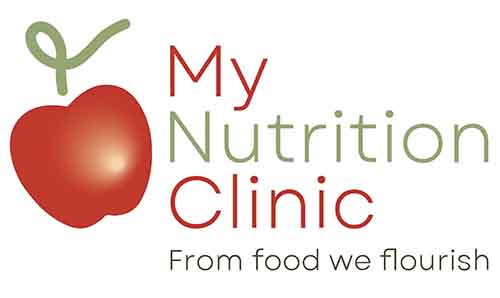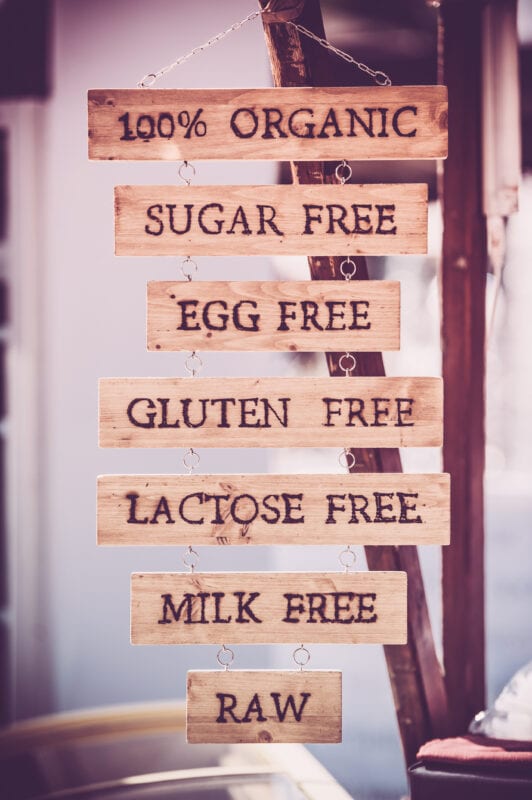Concerns about weight, Food intolerances, Gut Health, Intuitive Eating
5 reasons why dietary restriction is risky
Avoid these foods!
Only have a small amount!
You shouldn’t eat [insert food here]!!
So often we are bombarded with messages telling us to restrict or remove foods from our diet. It’s a problem. Dietitians at My Nutrition Clinic like to focus on ADDING foods rather than subtracting. Here’s 5 reasons why:
- A limited diet gets booooring!
Am I right? Before I knew better, I followed diets that eliminated foods, nutrients or even whole groups of foods. It was tedious, boring and it never lasted long. I couldn’t follow recipes, the grocery shopping took longer, my family and friends couldn’t keep up with what I was allowing myself to eat. Ugh. Tiring. Can you relate? A greater variety of foods lends itself to pleasure, excitement and satisfaction.
- Your relationship with food ties in with your social life
It certainly isn’t fun to rock up to a celebration, restaurant or social event and not be “allowed” to eat the food. *Disclaimer; there are certainly situations where you might need to avoid foods for medical reasons. Wherever we can, we try to reintroduce food ASAP to avoid this kerfuffle. If you have been restricting yourself on the Low FODMAP diet for more than 6 weeks, please come and speak to us.
- Risking nutrient deficiencies is never a good idea
Especially when whole groups of foods are avoided (e.g. calcium-rich foods/dairy) there is a risk of not getting enough vitamins and minerals (e.g. calcium) which might lead to a deficiency and long-term health complications (e.g. osteoporosis). Another example is avoiding animal foods then Iron and/or Vitamin B deficiency, or avoiding grains and lacking fibre, magnesium, folate. It may be a matter of finding suitable foods that you like and tolerate from each of the food groups.
- A lack of food variety is detrimental to the gut microbiome
People who eat more than 30 different types of plants each week have a more diverse gut microbiome and more of the beneficial bacteria (e.g. the short chain fatty acid producing F. prausnitzii). The diversity of different types of microbes (mostly bacteria) living in the gut is associated with health. A low microbial diversity may indicate an imbalance or overgrowth. Low microbial diversity is commonly seen in Irritable Bowel Syndrome, Inflammatory Bowel Disease and Clostridium difficile infection. To increase microbial diversity, increase the diversity of plant foods – each different plant will provide different fibres, resistant starches, polyphenols and other prebiotic ingredients that beneficial gut bugs feast on.
- Disordered eating patterns and Eating Disorders often stem from food restriction
Experiencing an uncomfortable relationship with food or a disordered eating pattern is certainly not uncommon. We hear it again and again from clients “…oh, now I realise my problems with food started when I went on that diet.” – let’s just not! We can improve diet quality and health markers without focussing on restriction. A common theme across all eating disorders, including Binge Eating Disorder, is restricting oneself to eat certain foods, certain amounts, at a certain time of day. It doesn’t improve health and it certainly doesn’t improve wellbeing.
What is the best way forward?
In nutrition therapy we certainly focus on including a wide VARIETY of foods. While we can see the research shows a benefit of including more than 30 different plants a week, we like to aim for more than 40! Think of all of the different types of fruits, vegetables, beans & legumes, nuts & seeds, grains & cereals, herbs & spices. Hint: choose 9 grain bread and you’re almost a quarter of the way to 40! 😉

